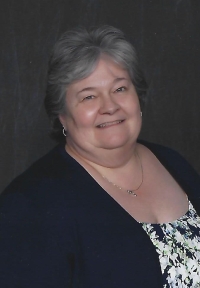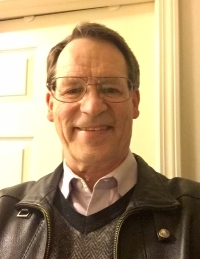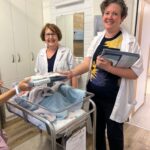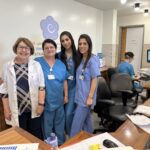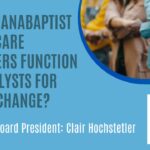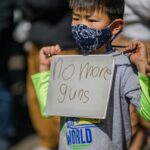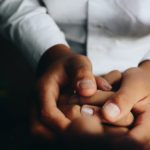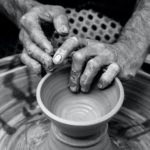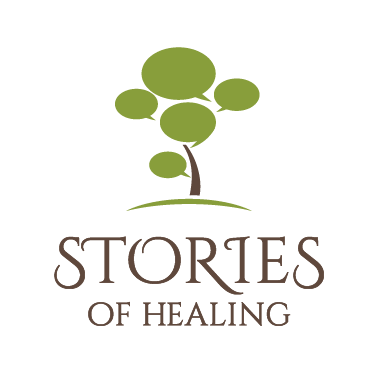
Annual Gathering 2018
Plenary presentations
All four plenary sessions of Annual Gathering 2018 were recorded. In some cases, written articles were created from the presentations. Click on links below.
 Amid the Pains: Christianity, Disability, Healing
Amid the Pains: Christianity, Disability, Healing
J. Alexander Sider, PhD
Alex Sider explores resources within the Christian tradition for framing human illness, impairment and disability–and, by extension, healing–as fundamental matters of social justice.
Video of Friday evening Plenary Session
Presentation begins at 32:05
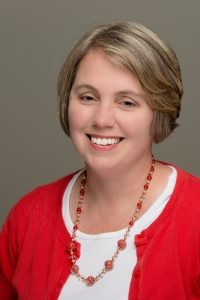 The Healing Power of Story
The Healing Power of Story
Beth Toner, RN, MSN, MJ
Beth explores the intersection of our own story with those of our patients/clients–and how those stories have the power to help us heal others, and ourselves. Beth draws upon insights from Libby Caes, a retired chaplain from Wisconsin who needed to withdraw due to illness.
Video of Saturday morning Plenary Session
Presentation begins at 37:40
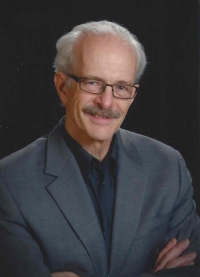 Pacifist in a War Zone
Pacifist in a War Zone
Experiences in a forward surgical hospital near Mosul, Iraq
William Swartley, CRNA MS
It is rare for a Mennonite pacifist to have an opportunity to work in a war zone. Bill Swartley will describe his experience working in a surgical hospital near Mosul, Iraq in June of 2017.
Video of Saturday evening presentation
Presentation begins at 40:45
Slides from presentation Caution: A few graphic images from war zone.
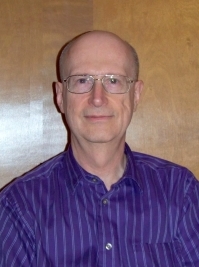 Salvation: Therapy, Cure, and Health
Salvation: Therapy, Cure, and Health
Paul D. Leichty, MDiv
The stories of Jesus’ healings in the gospel accounts are central to a Christian understanding of healing and health. Against the backdrop of his personal recovery from a December 2016 heart attack, Paul Leichty examines passages from Mark chapters 3 and 5 and see how the words used in the underlying Greek text reveal a richness of meaning that informs our ministries of healing today.
Video of Sunday morning Plenary Session
Presentation begins with scripture reading at 31:25
Workshops at Annual Gathering 2018
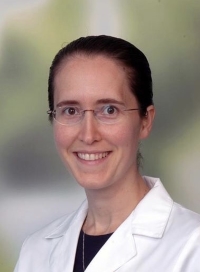 Our Own Stories: Provider Health and the Healer as Patient
Our Own Stories: Provider Health and the Healer as Patient
Anna Kauffman, MD
Bluffton, Ohio
As health care providers, we are used to caring for others, yet it can be challenging to be the patient. Narratives give insight into these situations. Background information included statistics on provider health and a review of the literature on providers as patients. Participants explored together strategies for being the patient and caring for ourselves and colleagues. Stories also provide an avenue to hear what healers as patients can teach us.
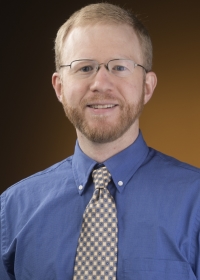 Healing Communities: Stories from Public Health History
Healing Communities: Stories from Public Health History
Ross M. Kauffman, PhD, MPH, CPH
Bluffton, Ohio
In this interactive session, Ross explored stories from the history of public health, looking for lessons to apply to improving the health of communities today. Stories examined included John Snow’s investigation to determine the cause of a cholera epidemic and Ignaz Semmelweis’s efforts to promote handwashing. The session will include an opportunity for some participants to engage with the stories through a virtual reality experience.
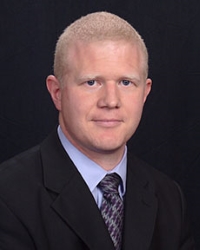 Direct Primary Care – New Model, New Solutions, New Problems
Direct Primary Care – New Model, New Solutions, New Problems
Rudi Kauffman, MAT, PhD
Direct Primary Care is an approach to primary care where patients pay directly for their care (rather than having payment go through an insurance company). This approach dramatically decreases the cost, but it also means that the truly indigent do not have access to it. Perhaps most interestingly, it can be built in a number of ways to incentivize wellness (rather than treatment), relationships (rather than “productivity” measures), and/or community (rather than entirely individual concerns). This presentation will introduce attendees to the practice of Direct Primary Care as it has been implemented at Hickory Medical in Bellefontaine, Ohio. The preponderance of the time will be spent in discussion of the ethical, moral, economic, and professional realities of the new model.
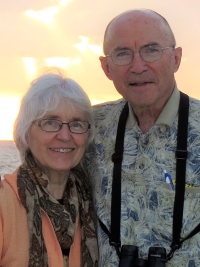 From Surviving to Living
From Surviving to Living
How one couple experienced quality of life in the midst of cancer.
Sarah and Herb Myers
During a time of intense stress and facing death, one can also find ways to enjoy life/living. Herb and Sarah will share glimpses into their lives of the tools that were helpful to them during the almost four years of Sarah’s treatment for non-Hodgkin’s lymphoma. Some of the quality of life-building tools that will be discussed include writing, exercise, faith, music, books, family, friends, humor and nature.
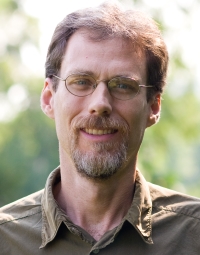 What Climate Change Means for Human Health
What Climate Change Means for Human Health
Stories and Solutions
Doug Graber Neufeld, PhD
This workshop will use stories to dialog on the impacts of climate change to human health, and to illustrate the interdependent relationship of healing in humans and the creation. This session will bring stories from diverse populations, including other cultures and socioeconomic groups, and participants will be invited to reflect on what this issue means for their own communities.
 Telling and Hearing Our Stories
Telling and Hearing Our Stories
Transforming Health Care Through Narrative
Beth Toner, RN, MSN, MJ
This workshop–which will build on the morning plenary session–will be designed to allow health care professionals at all stages of their careers, patients (and potential patients-that’s all of us!), and caregivers to learn more about how to practically apply narrative (storytelling) to provide healing and improve care. Participants will then talk through potential health care encounters, share their stories as patients and providers, and brainstorm together ways to practically apply narrative and storytelling in all types of health care settings to restore joy in the healing professions and transform the healing process for patients.
Healing and Death
Gail Weybright, MSN
Clair Hochstetler, MDiv
Death is generally viewed as the antithesis of healing, a failure of healing. But there are circumstances in which death may be viewed as the ultimate healing. Gail and Clair, in different roles and from different perspectives, experienced this together during the death of Clair’s brother Don. In this workshop they will share the story of Don’s life and death and explore how Don’s death and the death of others can be a form of healing. Scriptural accounts of healing and death will be highlighted. Ways to promote healing or a “good death” will be examined using the five elements of “Flourishing” as proposed by Martin E. P. Seligman and The Four Things That Matter Most – A Book About Living by Ira Byock, MD.
Worship at Annual Gathering 2018
Each plenary session during Annual Gathering 2018 began with a time of worship that includes plenty of singing. Leading worship in 2018 were Louise Ranck and Daryl Snider, both from Community Mennonite Church of Lancaster, Pennsylvania
Worship Leader
Louise Ranck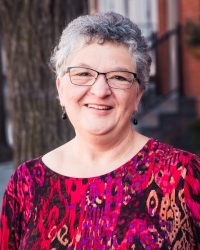
Ephrata, Pennsylvania
Louise Ranck has been involved in music and worship leadership for much of her life, including churches, MCC orientations, a Mennonite Women’s Gathering, a spiritual directors’ retreat, women’s drumming groups, teacher in-services, and many other gatherings. A public school music teacher in her first professional life, Louise has been an assistant manager at the Ten Thousand Villages store in Ephrata, Pennsylvania for the last 17 years. Among her various duties, she enjoys presenting fair trade education programs for school groups, managing teams of volunteers through huge warehouse sales, and driving the forklift.
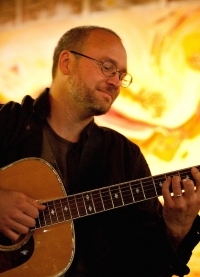 Music Leader
Music Leader
Daryl Snider
Lancaster, Pennsylvania
Daryl Snider is a singer-songwriter with an MA in conflict transformation from the Center for Justice and Peacebuilding at Eastern Mennonite University, focusing on the role of music and the arts in personal and social healing. As a STAR practitioner, Daryl and Sopa Sol bandmate Frances Miller developed a story and song program around healing and resilience. He was part of the ensemble that led singing at Mennonite World Conference 2015 assemblies in Harrisburg, Pennsylvania. Daryl lives in Lancaster, Pennsylvania with his wife, Jean Sensenig.

